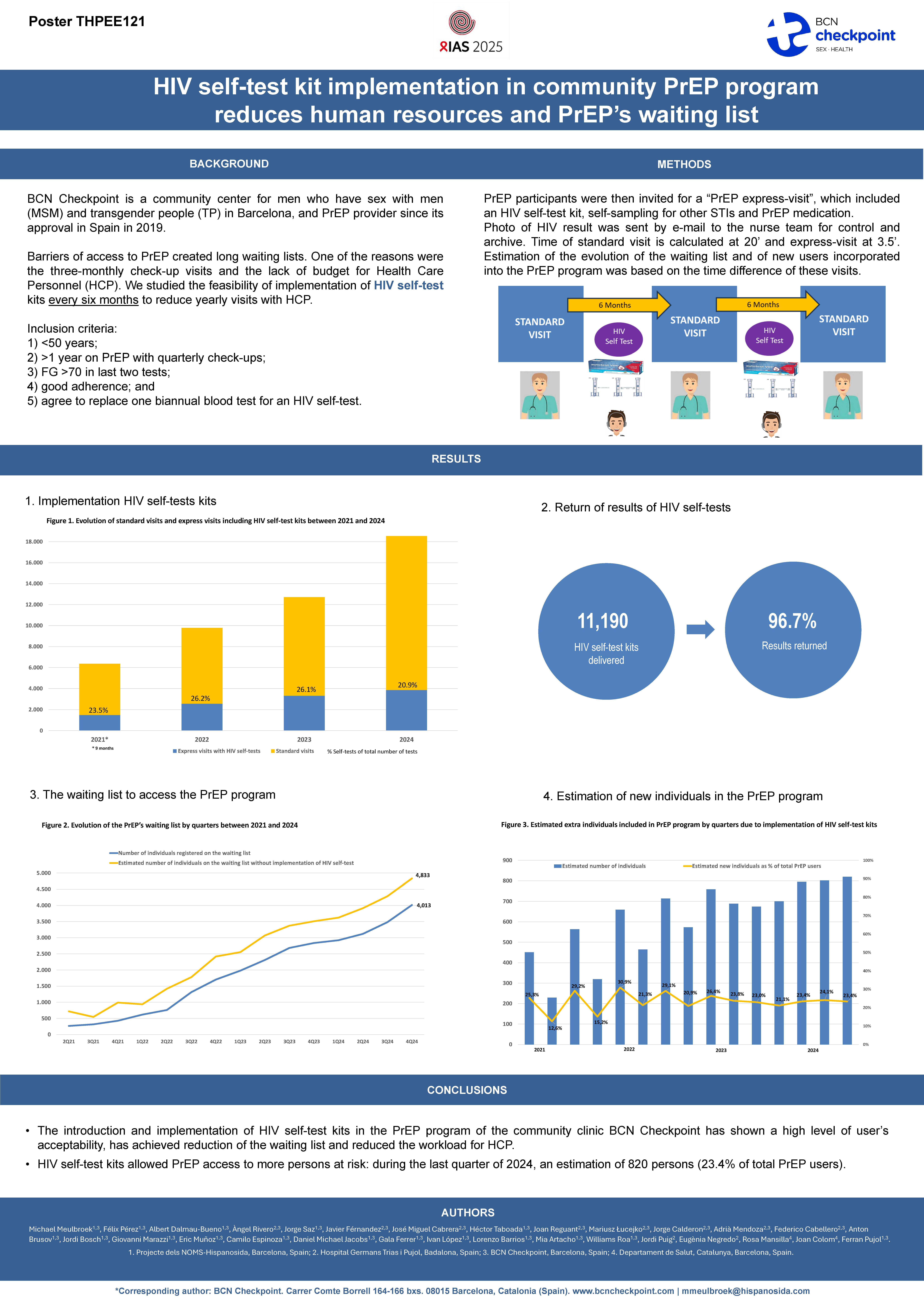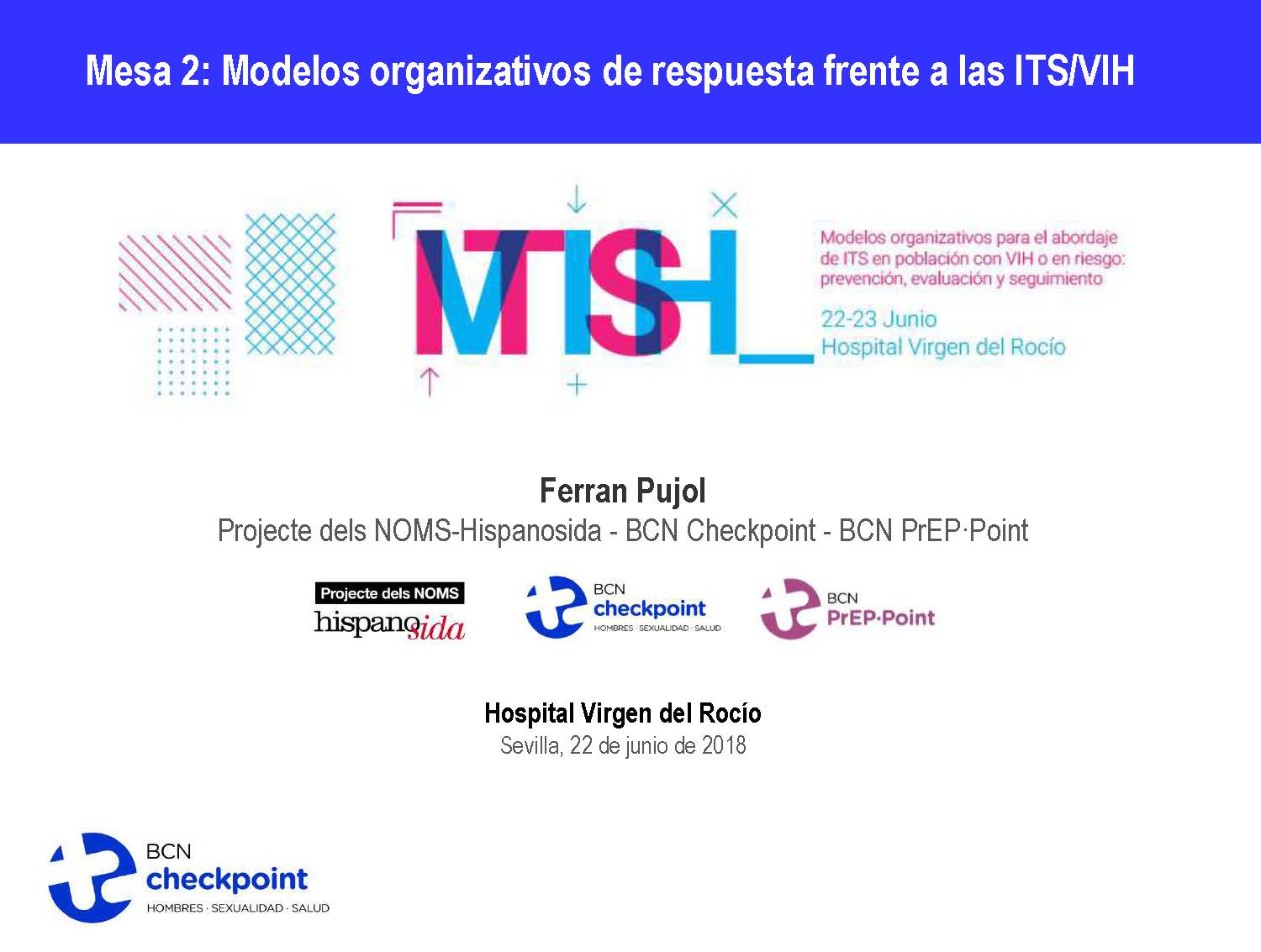Resumen
Objectives: We assessed the efficiency of BCN Checkpoint in detecting new cases of HIV infection and efficiently linking newly diagnosed individuals to care. Methods: This study analysed during 2007-2012 the number of tests performed and the number of persons tested in BCN Checkpoint, the HIV prevalence, global and in first visits, the capacity of HIV detection compared to the reported cases in MSM in Catalonia, and the linkage to care rate. Results: During the six years a total of 17.319 tests were performed and 618 HIV-positive cases were detected. Median prevalence of clients who visited the centre for the first time was 5.4% (4.1-5.8). BCN Checkpoint detected 36.3% (35.0-40.4) of all reported cases in MSM during 2009-2011. Linkage to care was achieved directly in 90.5% of the cases and only 2.4% of cases were lost to follow-up.Conclusions: A community-based centre, addressed to a key population at risk, can be less effort consuming (time and funding) and show high efficiency in HIV detection and linkage to care. Keywords: BCN Checkpoint, community-based centre, HIV detection, linkage to care, men who have sex with men (Extraído del documento)
Autoría:
MEULBROEK, Michael;
DITZEL, Eduardo;
SAZ BERGES, Jorge;
TABOADA, Héctor;
PÉREZ, Félix;
PÉREZ, Alberto;
CARRILLO, Antonio;
FONT, Gerard;
MARAZZI, Giovanni;
UYA, Jaume;
CABRERO, José;
INGRAMI, Massimiliano;
MARÍN, Rafael;
COLL VERD, Pep;
PUJOL ROCA, Ferran






